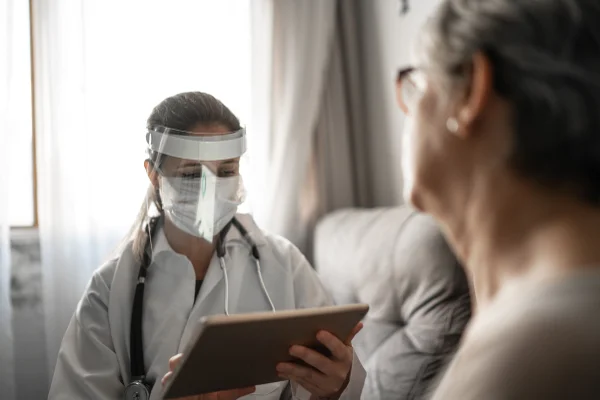Mental health emergencies are on the rise, and psychotherapists play a crucial role in urgent care settings. Their expertise allows for practical assessment and timely intervention, potentially saving lives. By creating a safe environment, psychotherapists help individuals manage overwhelming emotions while facilitating long-term treatment options. This article highlights their collaborative work with other healthcare professionals to ensure comprehensive care, showcasing the vital support psychotherapists provide during critical moments.
Understanding Mental Health Emergencies
Mental health emergencies occur when an individual’s mental state poses an immediate risk to themselves or others, often manifesting as severe anxiety, suicidal thoughts, or aggressive behavior. Timely recognition and intervention are crucial to mitigate harm and support recovery. The prevalence of these crises has risen due to societal pressures and the lingering effects of the COVID-19 pandemic, emphasizing the need for effective urgent care systems. As primary responders, psychotherapists play a vital role in recognizing early signs and providing immediate support, which is essential for facilitating long-term mental health treatment and recovery.
The Importance Of Addressing Mental Health Emergencies In Urgent Care Settings
Addressing mental health emergencies in urgent care is crucial for reducing harm and fostering recovery. Immediate intervention helps individuals in distress and promotes holistic healthcare by treating mental health crises with the same urgency as physical issues. By integrating mental health services, psychotherapists can provide rapid assessments and crisis interventions, alleviating pressure on emergency rooms. This approach supports those in crisis and promotes a culture of understanding, encouraging early help-seeking and prioritizing mental wellness in the community.
The Role Of Psychotherapists In Urgent Care

Psychotherapists are essential in urgent care settings, acting as frontline responders for acute mental health crises. They conduct thorough evaluations to identify underlying issues and determine appropriate interventions, vital in time-sensitive situations. Providing immediate crisis intervention through techniques like cognitive-behavioral therapy and mindfulness practices helps stabilize individuals and restore a sense of control in a supportive environment. Additionally, psychotherapists create personalized treatment plans for ongoing support, guiding clients to necessary resources and follow-up care, ensuring a comprehensive approach to recovery.
Training And Qualifications For Psychotherapists In Handling Mental Health Emergencies
Psychotherapists’ training and qualifications are essential for effectively managing mental health emergencies. They must possess advanced degrees in psychology, social work, or counseling, alongside specialized training in crisis intervention. Ongoing education through workshops ensures they stay current with evidence-based practices, and many pursue certifications in therapeutic modalities like dialectical behavior therapy (DBT). Supervised clinical experience through internships further enhances their skills, allowing them to apply their knowledge in real-world crises.
Effective Communication Strategies For Psychotherapists In Urgent Care
Effective communication is essential in urgent care settings, where psychotherapists must quickly establish rapport with individuals in crisis. By using active listening, empathetic responses, and open-ended questions, they build trust and gather critical information about the individual’s mental state. Adapting communication styles is also crucial, as those in distress may struggle to express themselves. Employing non-verbal cues and validation techniques can help them feel understood. Additionally, clear and concise communication ensures that individuals grasp the situation and actively participate in their care, fostering a sense of agency during crises.
Collaborating With Other Healthcare Professionals In Urgent Care Settings
Collaboration among healthcare professionals is crucial in urgent care settings for mental health emergencies. Psychotherapists work with physicians, nurses, and social workers to create holistic treatment plans addressing patients’ physical and emotional needs. This teamwork enhances patient care and fosters a supportive environment for providers, promoting effective communication and shared responsibilities. Regular interdisciplinary meetings further strengthen collaboration, benefiting both individuals in crisis and healthcare teams.
Assessing And Triaging Mental Health Emergencies
Assessing and triaging mental health emergencies is a crucial role for psychotherapists in urgent care settings. When individuals present with acute issues, therapists conduct thorough evaluations to determine severity and appropriate interventions, gathering information on the individual’s mental state, history, and contributing factors. Practical assessment tools like standardized questionnaires, structured interviews, and keen observational skills to interpret non-verbal cues allow accurate evaluations. After the assessment, psychotherapists employ triage protocols to prioritize care based on risk levels—classifying individuals as low, moderate, or high. This systematic approach ensures that urgent resources are allocated effectively, providing timely interventions for those in critical need.
Providing Crisis Intervention And Stabilization
Crisis intervention and stabilization are essential roles for psychotherapists in urgent care centers. They focus on providing immediate relief to distressed individuals through active listening, emotional support, and psychoeducation. By validating feelings and employing techniques such as grounding exercises and cognitive restructuring, therapists help manage acute symptoms and empower individuals to regain control. Developing comprehensive safety plans that outline distress management strategies and support networks also fosters a sense of ownership over mental health, encouraging active participation in recovery and enhancing long-term wellness.
Follow-Up Care And Referrals
Follow-up care is critical to effectively addressing mental health emergencies. Psychotherapists provide ongoing support through regular check-ins, adjusting treatment as needed. They also refer individuals to additional resources like therapy, medication management, or support groups. Reinforcing coping skills learned during crisis intervention helps build resilience and ensure long-term recovery. This continuous care fosters trust and stability, essential for lasting mental wellness.
Conclusion And The Future Of Psychotherapy In Urgent Care
As mental health emergencies arise, psychotherapists play a crucial role in urgent care settings, offering assessment, crisis intervention, and collaborative care. Their expertise helps address immediate needs and supports long-term recovery. With growing awareness and reduced stigma, the demand for mental health services in urgent care is expected to increase, requiring ongoing collaboration and training. Advances in telehealth also expand access, allowing individuals to receive care from home during crises. Psychotherapists’ presence in urgent care is vital for improving mental health outcomes, making their role increasingly important in the future of emergency care.













Comments